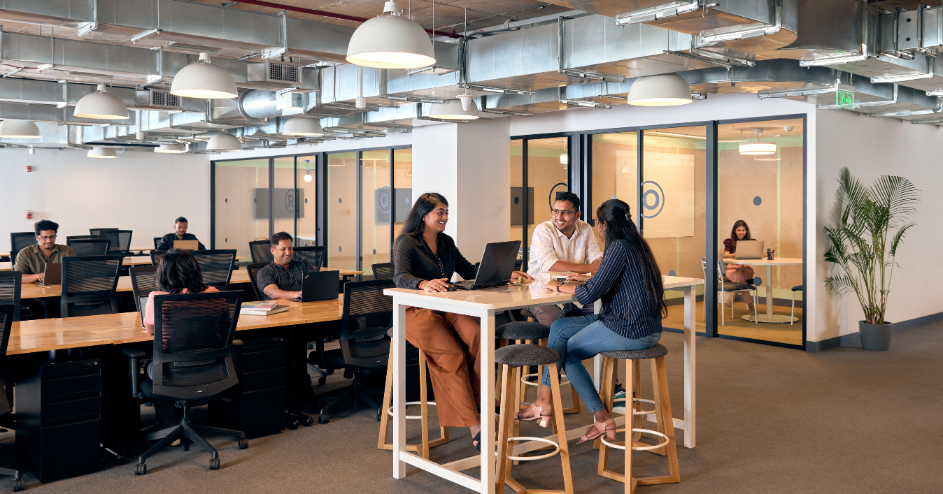WEWORK LABS
How to Build an MVP: A Guide for Startups to Achieve Early Success

Explore how to build an MVP in the startup stage. Learn strategies to navigate the lifecycle of a startup, focusing on features, customer feedback, and market validation.
Introduction
For startups in their early stages, having a Minimum Viable Product (MVP) is crucial for success. The MVP not only validates your concept but also lays the groundwork for future development.
In the current hypercompetitive Indian startup ecosystem, where nearly 95 startups are recognized daily, an MVP can help determine if your business is prepared to enter the market and tackle the challenges ahead.
At Labs, we believe it’s essential to outline how this process unfolds and highlight the key considerations necessary for building an effective MVP.
The obvious advantage of building an MVP early on in your journey is that you can constantly get the feedback you need to make your product and core business more well-defined. It also makes you an attractive investment opportunity for investors if you have an idea that is coherent and working smoothly. The cons are that you would be pushing out something that has limited functionality which could create negative perceptions. That being said, if you're still looking to create that first MVP, here's a guide for how you can go about doing that.
Focus on core features
Startups developing products for the Indian audience face several challenges. One major hurdle is the significant variation in user behavior across regions, languages, and cultural practices. One particular study found that nearly 21% of products today do not meet the needs and expectations of their intended target audience.
Identifying these core features then becomes essential as it becomes your guiding light to building a product that meets the customers where they are. To zero-in on what core features need to be, it's important to do the market research. Once you have these in place, it’s important to cultivate a customer-centric mindset.
Understanding the MVP Concept
Building a customer-centric mindset
Perhaps the hardest part of the MVP journey is maintaining a customer centric mindset throughout. This thought-based mindset carries forth to even later stages of your product journey, and one that most founders and senior leadership struggle to understand. According to a CMO council: “Only 14 percent of marketers say that customer centricity is a hallmark of their companies, and only 11 percent believe their customers would agree with that characterisation.”
When companies get their customer centric mindset in check, they happen to become at least 60% more profitable in their journey than their competitors. So how does one go about building it into their thought process?
For starters, it's great to bake a customer-centric approach right into your company and organisation’s culture. For instance, making sure customer empathy is at the core of what you do. Messaging workplace tool Slack for instance, regularly encourages employees to spend a lot of time reading customer messages to understand how their customers are using their product.
Flipkart, too, approaches having customer needs at the centre by having it being part of the way the company hires.
Many of the startups we regularly interact with at WeWork Labs too, have often cited this as an issue. We have supported their journey toward a customer-centric approach by helping them test their MVPs with a broad audience before launching in the market. If you’re seeking similar assistance, don’t hesitate to contact us through our website.
Be open to changing your idea
The journey while building your MVP is rarely ever straightforward. After launching your MVP, actively seek feedback from users to understand what works and what doesn’t. This iterative process allows you to make informed decisions about necessary changes or enhancements.
The difference between startups that have succeeded and those who have failed often boils down to the willingness to give up on an idea, especially when it seems like it isn’t working.
As Vaas Bhaskar, Principal, Elevation Capital mentioned during a talk at the Pre-Seed Summit: “Almost every successful company has pivoted something in their model at some point of time. In the early days if you think about what causes pivots and what are successful pivots. You start with a hypothesis, the severity of the pain point doesn’t exist, that's a good starting point. Either a structural reason or consumer behaviour that’s a good sign of thinking about pivot. Ultimately most important decisions, most pivots are a gut feeling. Even before the data tells you, you all can feel it, it's a good time to pivot.”
Also read: Building blocks of Indian start-up ecosystem
Building momentum for your MVP
To build momentum for your MVP, it's important to identify early adopters as soon as possible. By gathering feedback from real users, startups can determine whether their product meets market needs or if adjustments are necessary before further investment34. This validation is critical; according to CB Insights, lack of market need is one of the top reasons startups fail.
At WeWork Labs, this is a typical problem we solve for startups. We help them find avenues to test out products to different audiences and gather feedback. Our initiative Product Studio, helps founders access anything they would require to build that first compelling MVP. If you’re looking to activate your brand, head on over to our product page for more information.
Common pitfalls to avoid in an early startup stage
A big mistake startups make when building an MVP is overloading it with features, which just burns time and money before proving anything. Another trap is skipping real user validation—without feedback, you might be building something nobody actually wants. Scalability gets overlooked too; an MVP that works for 10 users but crashes at 1,000 isn’t setting you up for success. And if you’re not listening to users and iterating fast, you’re giving competitors an easy win.
What’s your strategies for building out an ideal MVP? Let us know. See you in the next WeWork Labs blog!
Related Blogs:

WEWORK LABS
With the Indian startup ecosystem gaining maturity, there are a number of things changing—startups are thinking more global in their ambitions, more companies are taking their companies to the market

WEWORK LABS
India may be home to unicorns and cutting-edge tech, but at its core, it's still a nation of farmers — with over 50% of the population dependent on agriculture.

